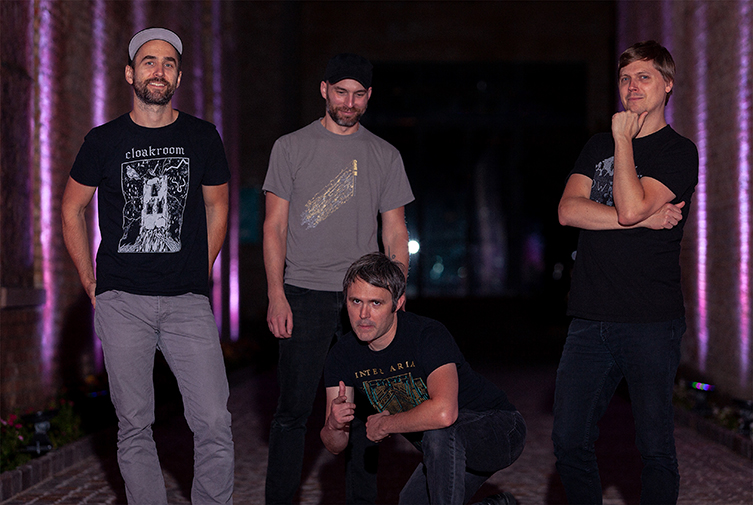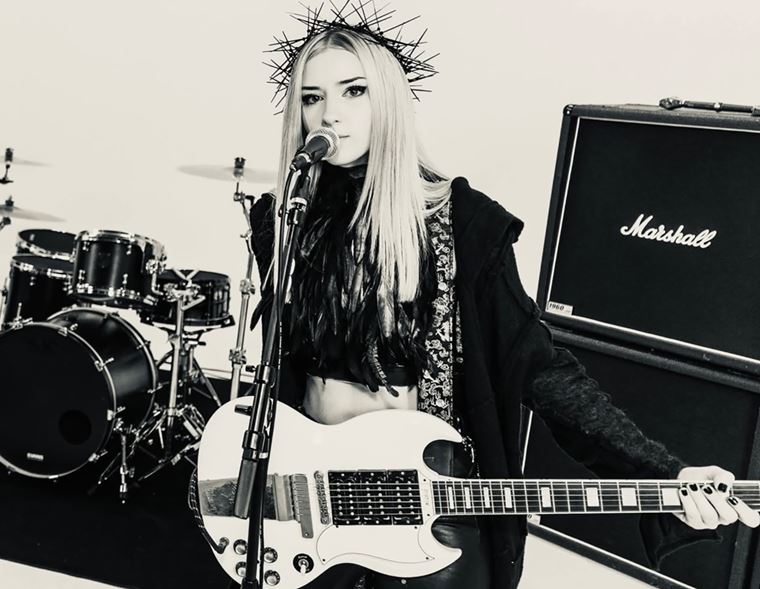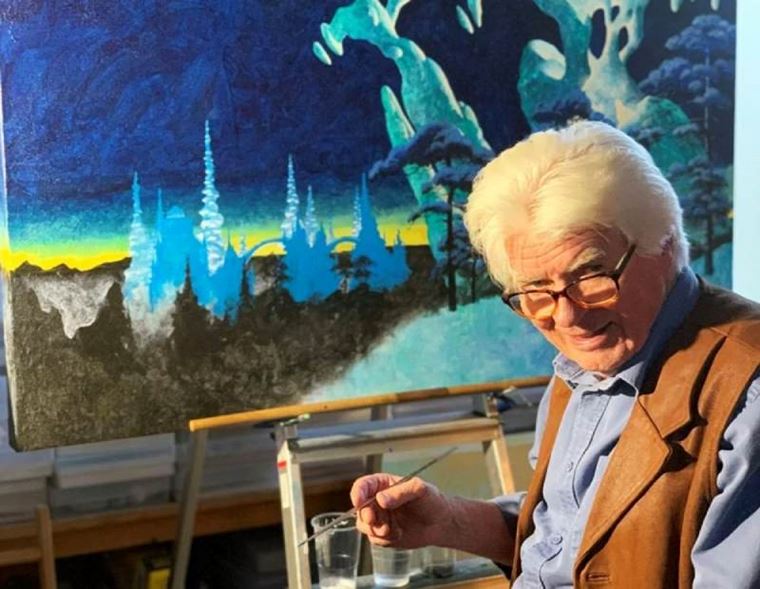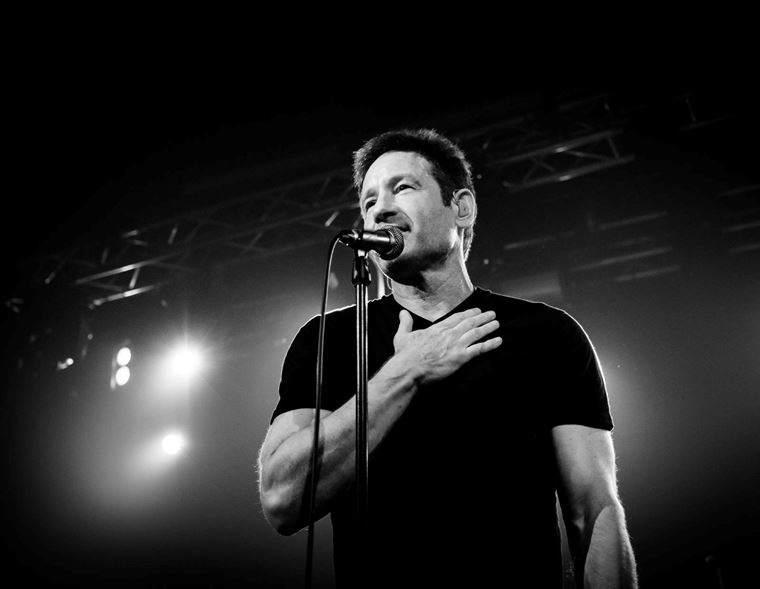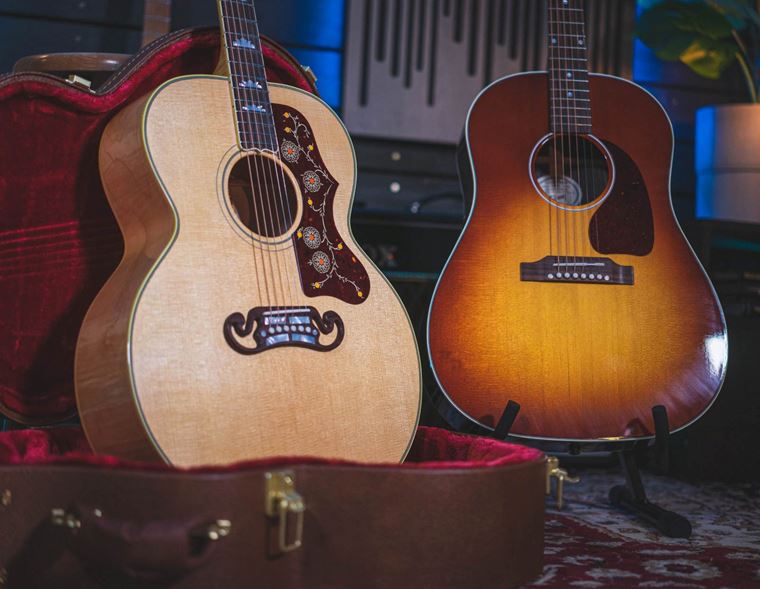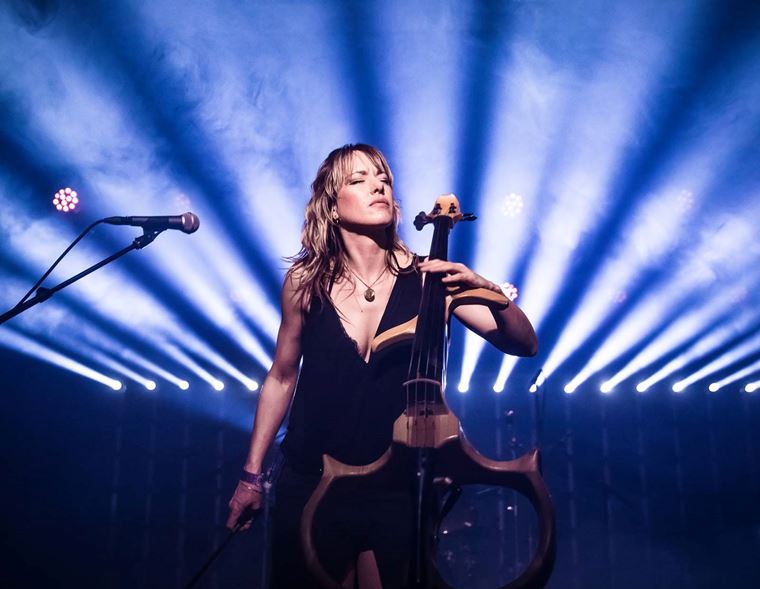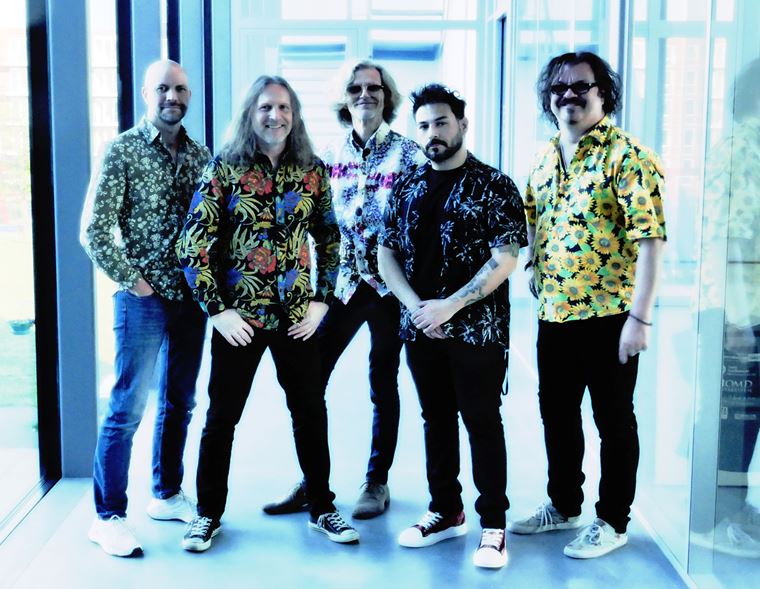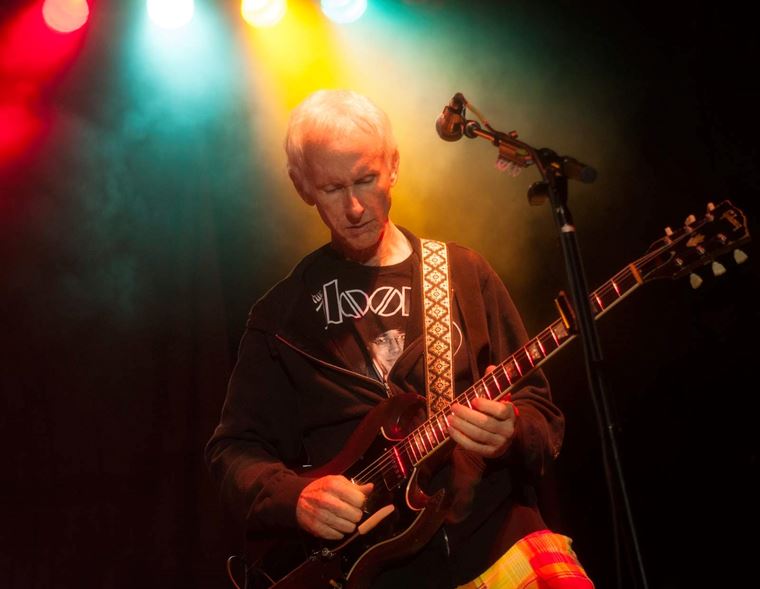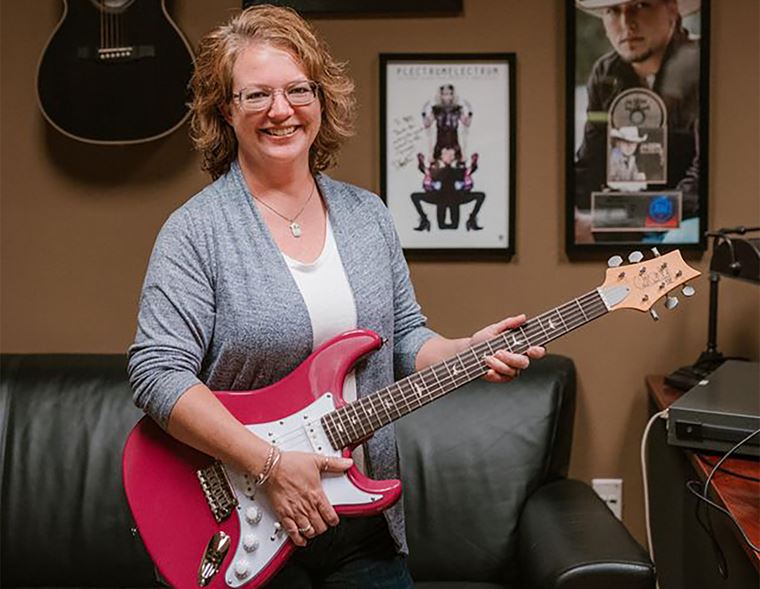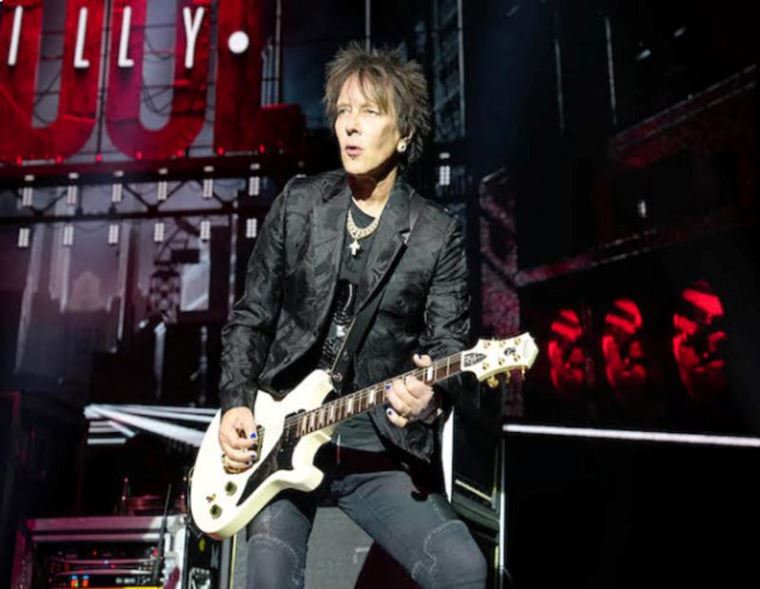The guitarguitar Interview: Pelican
Published on 29 May 2019
Pelican's grand, dynamic and soulful music has been a major force in Alternative, Doom, Post-Rock and Post-Metal scenes since 2001. Pelican bring an emotional honesty to their atmospheric, colossal music: riffs collide with melodies and ambience, all with a deep low end and plenty of muscle. In a scene with lots of 'epic' instrumental guitar bands, Pelican have always stood out. Their music defies genres, blending an undoubtedly Metal sensibility with a more pensive, reflective stance.
This year, Pelican release their 6th album, Nighttime Stories. This will be the first record made since the band tragically lost their friend and collaborator, Jody Minnoch. This loss plays a part in their music, as the process of writing new Pelican material always draws, as we will see, from the real lives of the members and the situations they live through. Nighttime Stories sees the band bringing a new, elegiac edge to their sound, whilst still coming across as nothing less than vintage Pelican.
We were particularly pleased to be able to speak to guitarists Dallas Thomas and Trevor de Brauw recently, to find out more about how Pelican go about crafting their immense music. We take in the importanve of volume, the difference between pedal gain and amp gain, and how their native Chicago informs their music!
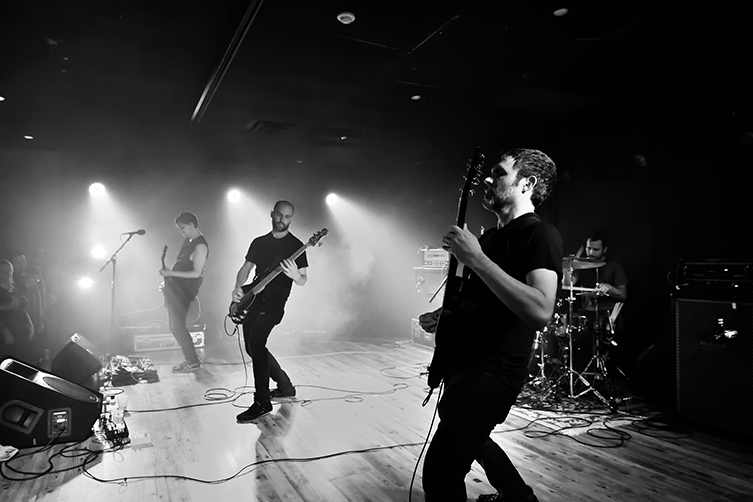
(photo: Ben Stucker)
Hello guys, thank you for talking with me! Your latest album, Nighttime Stories, is your 6th. With this, did you feel like it was time to push the boundaries of what you’d done before? There is something of a legacy now...
Dallas Thomas: In that this was the first Pelican record that was started from a clean slate with me in the band, staying true to what came before while still moving things forward was something that I was very conscientious about.
Trevor de Brauw: At this point I think of the band as less of a specific sound and more just the unique chemistry that we have when we play music together. This became especially evident on Forever Becoming, which was the first album written without Laurent. I was surprised to find that when I brought riffs in that felt a bit atypical to what I perceived our sound to be, as soon as we started playing them together they would take on a Pelican sound. With that in the back of my mind I was unconcerned whether pushing our sound into new territories would sound wrong or disingenuous - I was confident at the end of the day the results would surely sound like Pelican.
What was the overall intention behind this new collection of music?
DT: It was pretty much a natural progression of going through ideas that we all liked and agreed on that both directly and indirectly captured zeitgeist of our lives and society as a whole.
TD: Ultimately each album is a bit of an emotional journal of what was going on in our lives when it was written, this is definitely no exception.
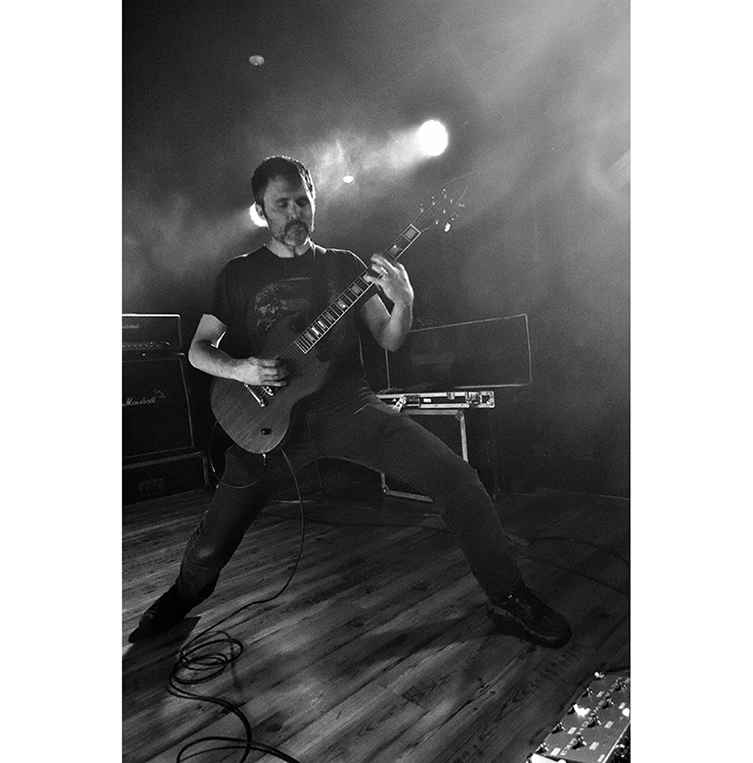
(photo: Ben Stucker)
Interweaving guitars play a large part in your sound: do you get together to feel these parts out by jamming or are they written in advance?
DT: Both… Ha! Depending on which song and/or part. Since half of the band is Chicago and LA, we send most our ideas via dropbox. We just email each other sketches back and forth, then flesh them out when we get together in person.
TD: Every song goes through multiple revision processes on their way to completion. The usually start as these riff sketches, sort of really loose collection of parts, which we then flesh out into songs in the rehearsal room. Then we fine-tune the interplay. Demoing the songs was pretty integral in terms of making sure all of the interlocking parts were cutting through and complementing one another.
Did the unexpected death of your friend and musical collaborator Jody Minnoch in 2014 influence the new material?
TD: That occurred before we’d instigated the writing process. His death sent me down a retrospective path, which had a bit of influence over the first song written for the record, which was the title track. Consciously or unconsciously the vibe of that song seemed to awaken some new paths to wander down, so it was an influence at the onset of the process, but maybe less so the further we ventured into the wilderness.
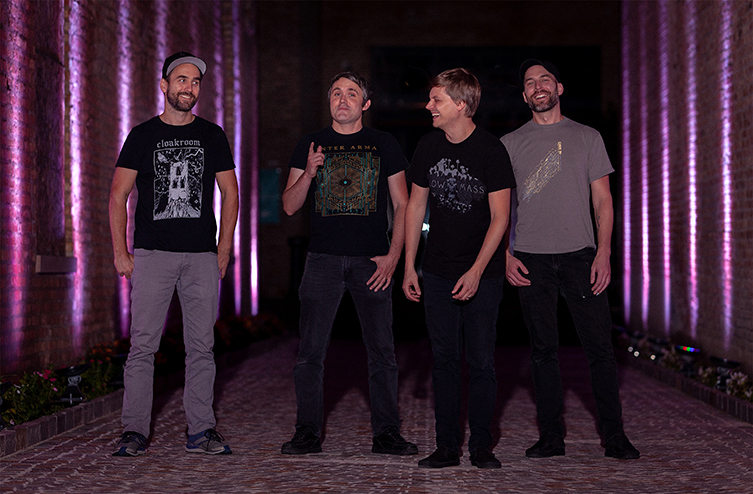
What other influences are brought to Pelican?
TD: It might sound trite, but really everything. Movies, books, conversations, the sound of the wind in the trees, the emotional complexity of parenthood; pretty much everything shows up in the music at some point.
Riffs are obviously important to Pelican’s sound: how do you keep ‘riffing’ fresh as an artform?
DT: For us it is listening all different kinds of music. Bryan and I are both fans of Fela Kuti and Afro Beat. It is awesome how much mileage they get out of one part or riff just using repetition. Even though stylistically you wouldn’t know it, but the outro riff of “Cold Hope” and middle section of “Abyssal Plain” are both examples of that. How much can we get out this one riff is always a fun challenge.
Do the best riffs come out spontaneously for you, or did you get more success when you methodically write them?
DT: I would say that Trevor is more spontaneous and I am more methodical. So Both...Ha!
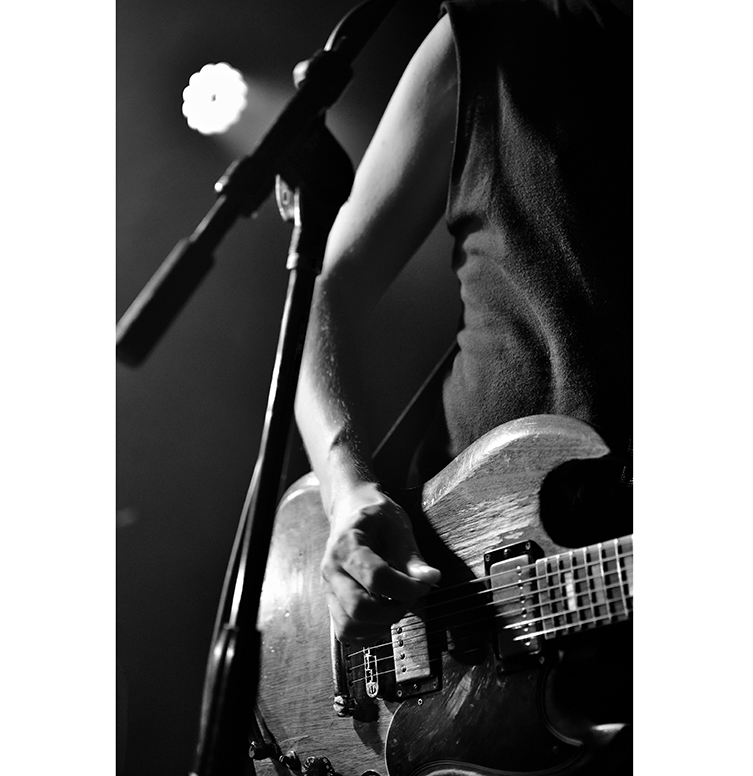
(photo: Ben Stucker)
What tunings to you incorporate?
DT: For the most part just B-Standard. Some times Bryan will write songs in a drop-B tuning, but if he doesn’t play guitar we’ll just transpose it to B-Standard to not bore the crowd with extra tuning, but it does result in some awkward fingerings though...Ha!
In that vein, what gauge of strings do you guys favour? And what about plectrums?
DT: Both of us use 13-56 D’Addario strings. I use the large Dunlop Jazz III picks
TD: I use the yellow Dunlop picks. I don’t know what they’re called.
Can you talk about the equipment you used to the record the album? Does this differ from your touring equipment?
DT: I try to mainly use Marshall 100w plexi reissues live and studio. On NTS for all my rhythm tracks I used one of my custom SGs made by Scale Model Guitars through a Soldano Superchager Overdrive Pedal into plexi reissue through an original 1975 Marshall cab. Then various things for overdubs. Live, especially for fly dates, I try to keep things as simple as possible and always use a Bogner La Grange, Earthquaker Dispatch Master, HBE Detox EQ and a Boss Tuner into a Marshall Plexi. For regional or longer tours I will get more fancy with my pedal board, and bring out a Carl Martin Loop Switcher and the Soldano Supercharger pedal.
TD: In terms of live performances, lately I’ve been using an Ampeg v-4 through an Emperor 4x12, though I’m not picky about cabs and I’m down to use any head that has a relatively clean tone so I can do the majority of my tone sculpting on the pedal board. My pedal board includes a Dunlop volume pedal, a Proco Rat, an MXR Micro Amp, Earthquaker Organizer, Boss Phase Shifter, Boss DD6, a Nova Delay and some other shit that shifts in and out. I skewed pretty close to my live rig for the album, but I tend to bounce around a little bit with gear in the studio trying to pursue the right sound for each part. Pretty much every song has that one main tone on it and then an assemblage of other stuff too.
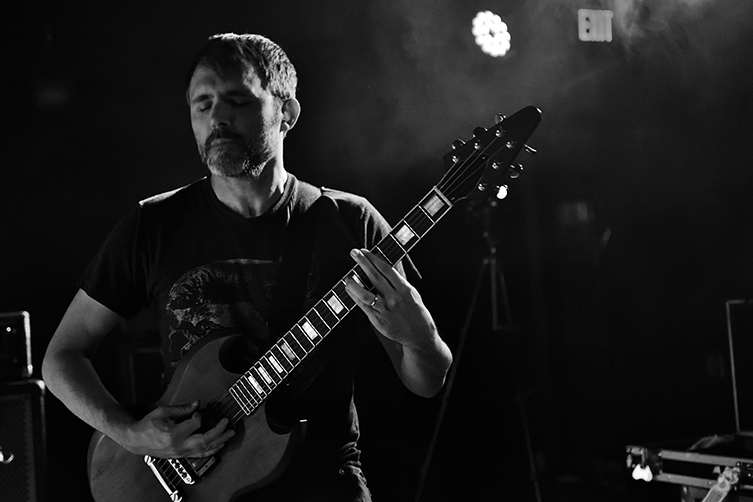
(photo: Ben Stucker)
What makes for a great ‘Pelican’ guitar?
DT: Safe to say some sort of Gibson hybrid. Laurent used to use Les Paul Custom, but Trevor and I are both SG guys.
TD: I think one thing that’s key is punchy midrange in the guitars. We definitely like a touch of low end to make the chunks punchy, but generally speaking the tuning is low enough that we don’t want the riffs to get lost in washed out weighing them down in lower frequencies. We let Bryan handle that side of the spectrum!
Is volume a factor in your creativity?
TD: It’s funny, a lot of the old Pelican records were written on acoustic guitar and volume was just a factor when they went electric in the rehearsal room and at shows. But now I find trying to write songs on acoustic or even low volume electric to be stifling. I think I’m so used to Pelican as a live entity I need to feel that volume to drive the riffs.
DT: Yeah, volume and dynamics play a big part for sure. It is really hard or impossible to replicate the air pressure and physical feeling that’s summoned from the band playing at full volume on a big PA on a recording…
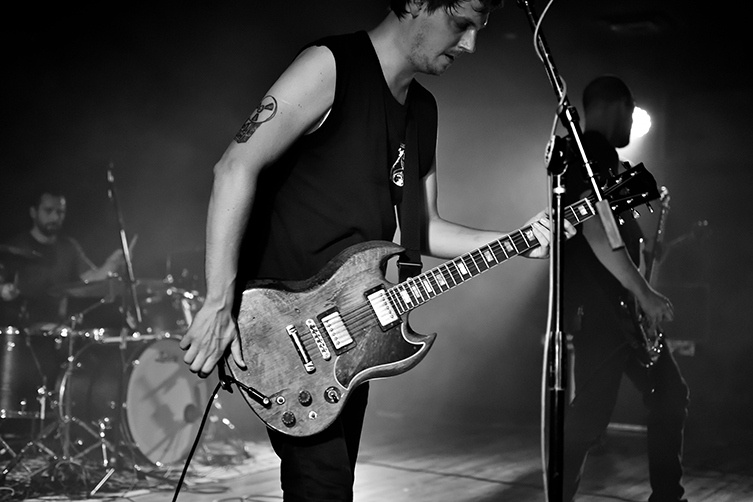
(photo: Ben Stucker)
I’d be interested to hear your thoughts on digital amplification technology, such as Kempers and Axe-FX etc. Can you get what you need with this technology?
DT: I have nothing against digital amps, but I can get everything I need out of a couple of pedals and a 100w Plexi…
TD: I simply have no experience in that realm. I came up on tube amps and they’ve always done right by me.
Your studio is burning down, and you can only rescue ONE fuzz/distortion pedal: which one gets saved?
DT; Easy! My Soldano SuperCharger… They dont make em anymore…
TD: up until very recently I only used tube distortion from my amp, so my experience in this realm is very limited. Of the few distortions I’ve tried my personal favorite for what I’m going for is The Rat. Not exactly rare, so not sure it’s worth braving a fire...
You’ve indicated that the current political climate of the USA has influenced your music. Are musicians in general not saying enough in this regard? Should American bands be stepping up and making statements more than they are?
DT: I personally feel that politics divide people, and that music brings people together, so I will default to Trevor for this one, because I am not smart enough to come any solutions for most issues in the world...
TD: I don’t know that I feel comfortable making a blanket statement like not enough bands are speaking up; it’s not really my role to say what people should or shouldn’t be talking about in their bands. I will say, as someone who grew up during the Reagan years when so much politicized music was released in reaction to his policies, I’m a little surprised that the vast majority of music has stayed so middle of the road and tame. But artists process and deal with situations in really different ways and that’s totally valid.

(photo: Ben Stucker)
And if you agree that they are not, why not?
DT: I am supporter of Free Speech. If you have some something to say you should be allowed to say it. But it is one’s choice to join the discourse of not. I feel that artists are one of the few demographics in society that actually have a voice beside politicians and the super rich… I find it rather amusing that just because someone is an artist that some feel that she or he should just shut up and entertain and not exercise their freedom to speak… So use it or lose it I guess...
Pelican always sound massive: is this indicative of your live sound? What can fans expect from a Pelican live performance?
TD: Bring earplugs. Unless it’s a city or venue with decibel restrictions; in that scenario you’ll probably be fine.
DT: I feel we are pretty pinned up and ready to unleash this new material as tight and heavy as acoustics will allow...
What is the typical writing process for Pelican?
DT: It is very Democratic. Trial and error and endless debate…
TD: The most successful songs seem to start from a very simple place - just a very barebones structure and a couple few riffs. Then we start hashing it out in the practice space and feel out where things want to go. I find that once I hear what everyone is doing on a part it naturally gives me some ideas of where else it can go. Once there’s some determination about how the song fits together structurally we start fine-tuning the details.It’s a built like building a house - first you frame it out, then come the walls and the roof, then once everything’s up and in place you throw a couple coats of paint on everything.
You guys are from Chicago. Does that city play a role in the inspiration of your sound? Or indeed thematically in your pieces of music?
DT: Cold weather calls for Cold Riffs….HA!
TD: I think the breadth of music that’s available in this city and the overlapping of participants in all the different scenes just generally spawns really well rounded and diverse music.
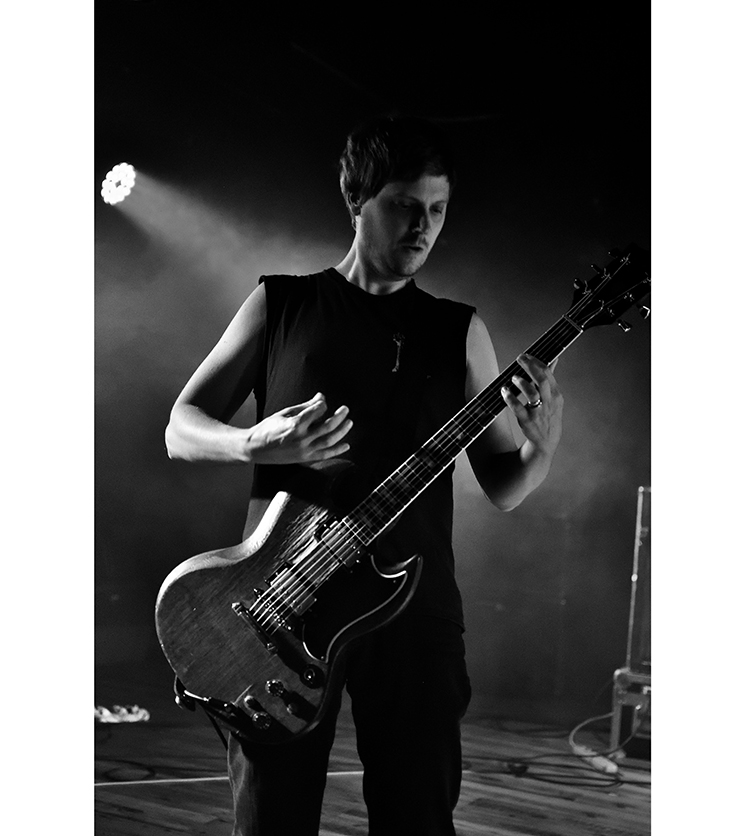
(photo: Ben Stucker)
Does the lack of a vocalist allow your music to go in directions that a more traditional Rock band line-up maybe couldn’t?
DT: Without vocals there’s a lot more space for the guitars, not only musically but sonically. We never have to worry about guitars being too loud drowning out vocals. Also I feel it creates a special crossover for people that don’t normally like heavy music because they are turned by typical heavy music vocals.
TD: I think it influences our approach to melody and stuff like that, as well. Because there’s not a traditional melody line coming off the vocals we typically use the guitars in a more melodic way. Even during the really heavy stuff I think we subconsciously pepper a melodic undercurrent through everything. It gives the songs their emotional resonance.
What are your three main tips for surviving on the road?
DT: 1. Stay Hydrated, 2. Bring Vitamins 3. Extra Toilet Paper...
TD: Don’t be an asshole. Assholes get treated like assholes and it will make you have a miserable time being treated like an asshole all the time by people you’re living in close quarters with.
Pelican have been making records for nearly two decades. How has the advent of streaming changed business for you?
DT: It pretty much means you can easily make your music available all over the world. But playing live and touring is was separates the sheeps from the goats… Ha!
TD: the only constant in this industry is that everything is always changing
Finally (cheesy question): what are your own favourite night time (as in bedtime) stories?
DT: My daughter’s favorite is “Everyone Poops” by Taro Gomi
TD: Lately I’ve been reading the Mueller report at bedtime. It’s not fun!
Pelican's new album, Nighttime Stories is released on June 7th on Southern Lord Records. Catch up with all things Pelican-related on their website here.
We'd like to thank Dallas and Trevor for their time and for giving us some great answers! We'd also like to thank Lauren Barley for all of her help setting this up.
